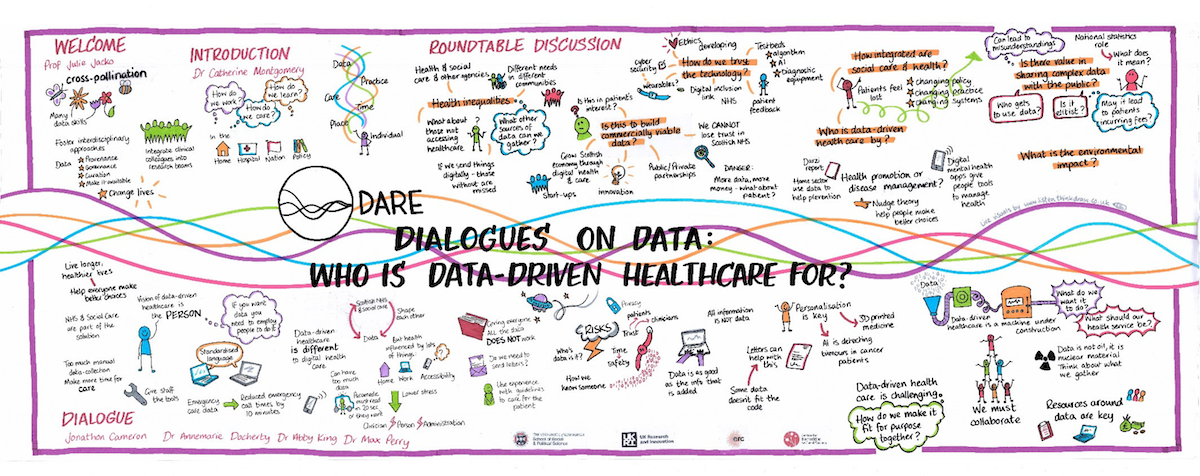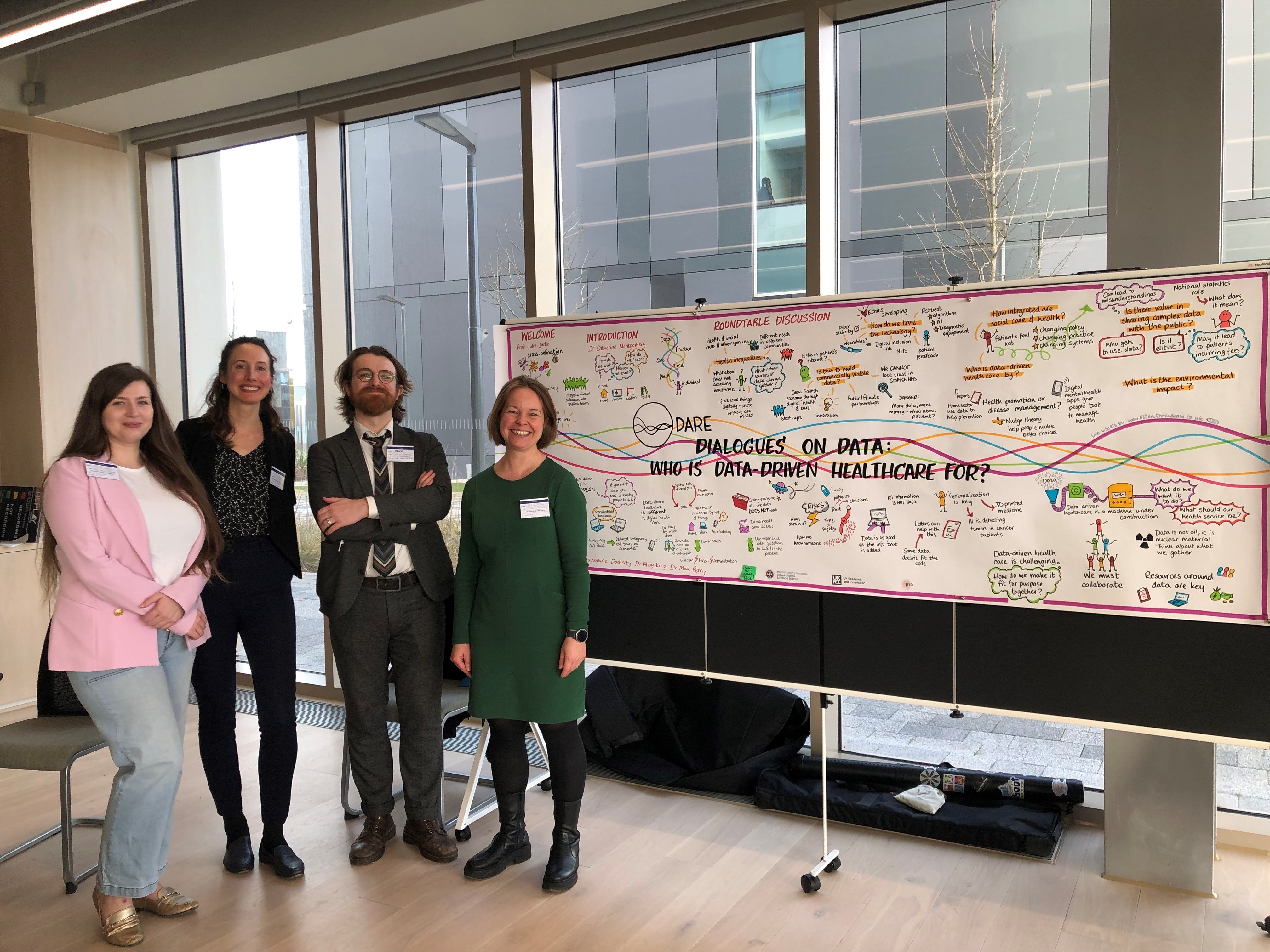Dialogues on Data: Who is Data-Driven Healthcare For?
On 31st January 2025, the DARE team, in association with the Centre for Biomedicine, Self and Society, hosted ‘Dialogues on Data: Who is Data-Driven Healthcare For?’ Catalysing conversation between academics, policy-makers, third sector organisations and healthcare practitioners, the event challenged participants to discuss what data-led healthcare might look like over the next 30 years, as well as the challenges and frictions of on-the-ground realities in the here-and-now. Julie Anne Jacko, Professor of Health Informatics and Data Science and Dean of Innovation and Engagement in the College of Medicine and Veterinary Medicine gave welcoming remarks, and we were delighted to be joined by guest speakers Jonathan Cameron, Deputy Director of Digital Health & Care at the Scottish Government, and Annemarie Docherty, Wellcome Career Development Fellow and Honorary Consultant in Critical Care.
The wide-ranging conversation brought together perspectives from across medicine, data science, the humanities and social sciences, and covered topics including:
🔹 How we can avoid perpetuating health inequalities and think inventively about data and inclusivity
🔹 The role of patients & the public in authoring, accessing and scrutinising data
🔹 How to recognise blind spots, biases and conflicts of interest in/between academia, industry and government
🔹 Commercialisation, trust, ‘dangerous data’ and elitism
🔹 What optimal use of routine data for care could look like
🔹 Environmental sustainability and the kind of healthcare system we want to build
The dialogic format of the day was designed to bring together people who might otherwise not share the same forum. Colleagues from Care Opinion Scotland, Scottish Government, NHS Lothian, NHS National Services Scotland and DataLoch sat with colleagues from the University of Edinburgh working in STS, philosophy, history, law, informatics, sociology and anthropology. This undoubtedly had the desired goal of inventive problem-making (Michael 2012); that is, rather than narrowing down our conversations into easily-consumed solutions, the dialogues multiplied inspiration for the kinds of questions we need to be asking. This was not without disciplinary frictions; indeed on a fundamental level, it became apparent that when we talk about data, we are not all talking about the same thing. Acknowledging and surfacing assumptions about data is key to ensuring that people aren’t speaking past each other in such conversations.
It is here that the DARE team is devoting further reflection post-event. As ethnographers of data practices in contexts of care, we occupy the privileged position of being able to provide both emic and etic accounts – that is, constructing insider accounts of data worlds and relating these to understandings of social worlds which exist beyond and between them. This work, fundamentally concerned with making visible different analytical perspectives, standpoints, and the positionality of actors, forms part of our larger goal to produce new theoretical repertoires with which to conceptualise healthcare in the twenty-first century.

References:
Michael, M. (2012). "De‐signing the object of sociology: Toward an ‘idiotic’ methodology." The Sociological Review 60: 166-183.
Visual recording by Clare Mills, Listen Think Draw
